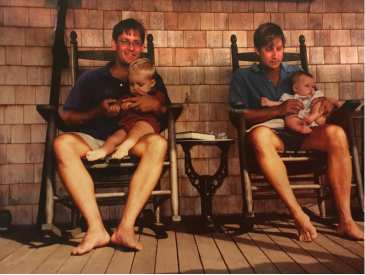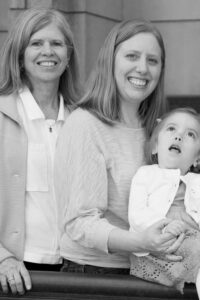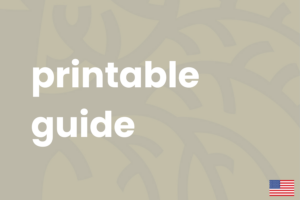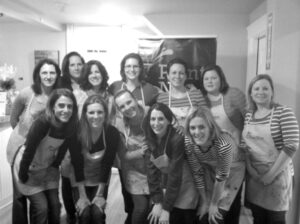Extended Family and Friends
Grief is both deeply individual and very communal. Some in your circle will show up in ways that are helpful. Some may happily surprise you with their insight and caring. You may also find that some people, even if they are well-intentioned, will do or say things that feel unhelpful or hurtful. You can decide what you need, and when.

Your Team:
A mental health professional who uses therapy and other strategies to support coping and adjustment and treat concerns regarding social, emotional, or behavioral functioning.
A trained professional who works with people, groups and communities to help them better their lives.
A specialist whose aim is to improve the quality of life of their patients over the course of their illness regardless of stage, by relieving pain and other symptoms of that illness.
A member of the clergy who is responsible for the religious needs of an organization and/or its constituents.
An individual who leads and/or guides individuals or groups coping with life experience and challenges.
A psychologist, social worker, palliative care clinician, chaplain and/or spiritual leader can provide a space for talking through emotions that may arise for you and other family members. They can also help you explain challenges to your extended family and community. A trusted friend or close family member can act as your communication hub, helping to keep others informed. Connection to other families that have lost a child can be helpful.
There are lots of ways to let people know what you need. One way is to have a family member or close friend act as a communication hub. Or, you may want to consider using an online resource that allows you to specify what would be most helpful, and allows others to volunteer and schedule assistance.
You may find that your community circles change. Who and what you need around you may also change. For some, this will happen immediately; for others, it will happen over time. People you thought would support you may not, or they may draw close initially and then drift away. They may not know what to do, be scared to say the wrong thing, feel helpless or overwhelmed by their own emotions, or not want to intrude. At the same time, other people (some unexpected) may show up in the most helpful ways, strengthening your bond. Forming new friendships with other parents of children who have died can also feel very validating and supportive.
All this change can feel painful. It might help to consider that, like grief, relationships can shift over time. Being hopeful and open to change can support you from what you are feeling in the moment.
– Sarah, parent of Emerson
Related Resources
-
 Podcast: Becca and Christine – a grandmother and mother reflect on little Emmaaudio
Podcast: Becca and Christine – a grandmother and mother reflect on little Emmaaudio -
 Grieving with Others: Ways to Let People Inguide
Grieving with Others: Ways to Let People Inguide -
 Podcast: The Neighborhood – Friends sharing in their experience after lossaudio
Podcast: The Neighborhood – Friends sharing in their experience after lossaudio -
 The biggest transition is people not coming into the house everyday.video
The biggest transition is people not coming into the house everyday.video -
 "When she was alive, we invited people in. We are learning how to help people connect with us again."video
"When she was alive, we invited people in. We are learning how to help people connect with us again."video -
 There’s no bereavement group for aunts: Double-duty grieving. I'm grieving for me but I'm also grieving what my sister has lost.video
There’s no bereavement group for aunts: Double-duty grieving. I'm grieving for me but I'm also grieving what my sister has lost.video